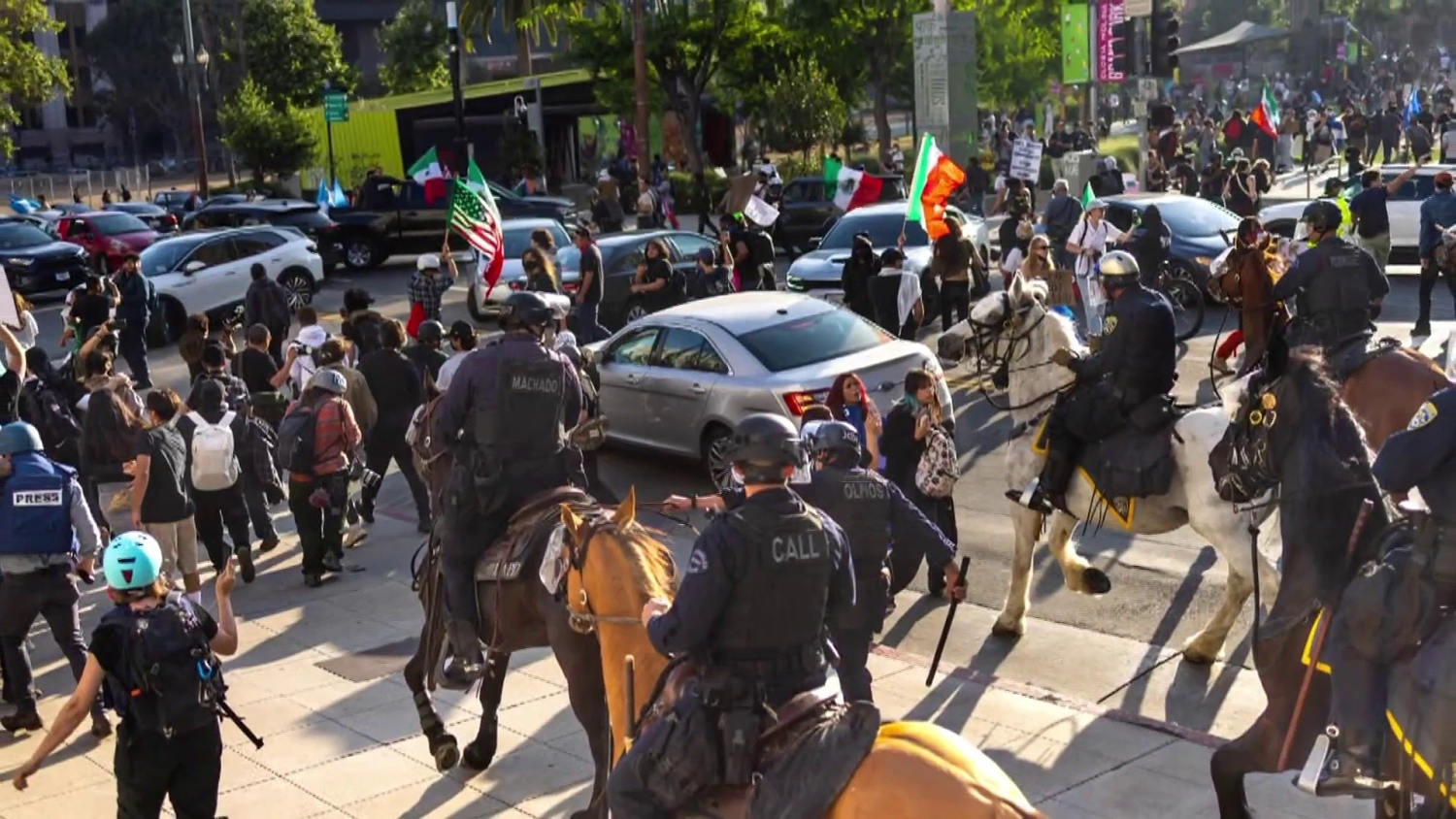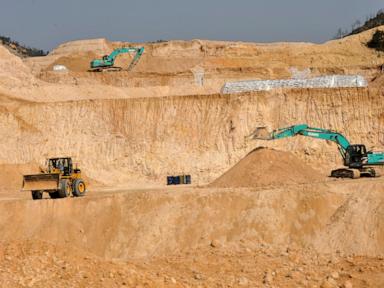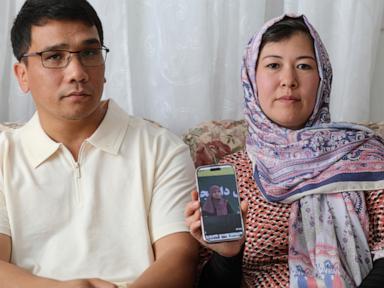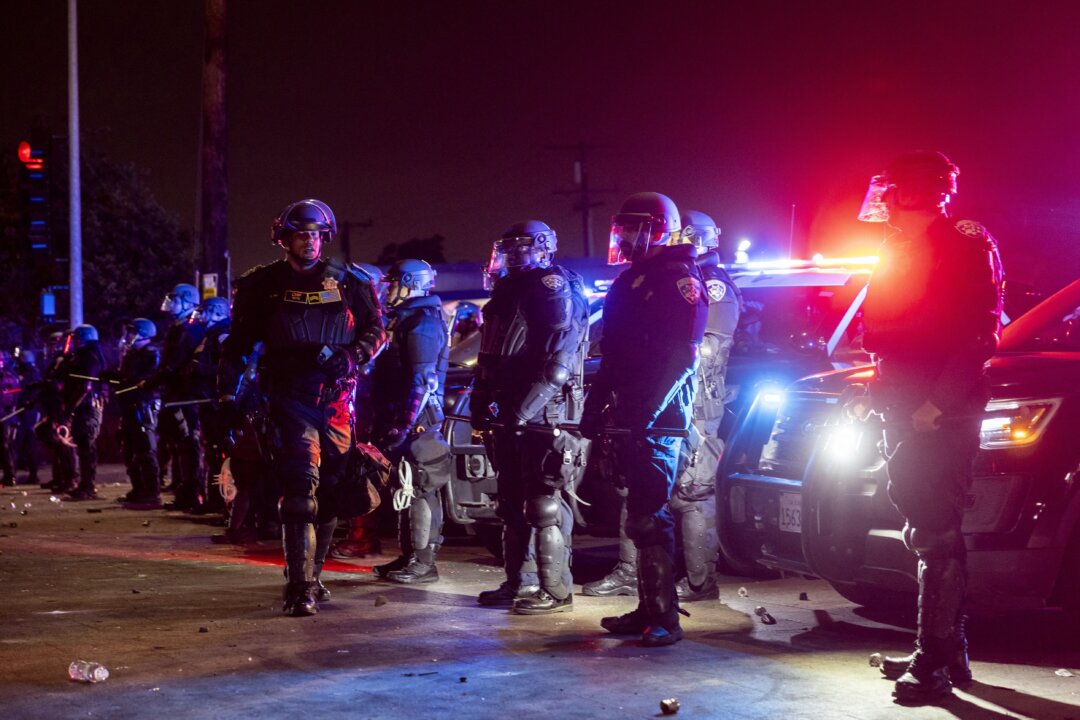Early Friday, Israel changed the face of the Middle East by launching an unprecedented attack on Iran’s nuclear facilities and killing a slew of senior Iranian commanders. Iran retaliated with a massive drone and missile strike on Israel.
What happens next? President Donald Trump has expressed optimism that the Israeli attack will force Iran’s supreme leader, Ayatollah Ali Khamenei, back to the bargaining table following weeks in which Khamenei rejected Trump’s demand that Tehran cease all uranium enrichment. But former ambassador Ryan Crocker, one of America’s most experienced diplomats in the region, believes that would be “an unthinkable humiliation and capitulation” for Khamenei — meaning the conflict is likely to drag on and grow even riskier.
“The capabilities that Israeli intelligence has displayed — again, stunningly — is that they have the Iranian national security infrastructure thoroughly penetrated,” he said. “So one has to assume that, if they wanted, they are positioned to also target the political leadership. If the Israelis do that, it could lead to an Armageddon-like response on the part of Iran.”
This interview has been edited for length and clarity.
How do the Israeli attacks on Iran alter the situation in the Middle East?
We’re at a totally new level in the Iran nuclear issue. This is not one that Israel is going to back away from until they feel that they have achieved their goal, which is the elimination of Iran’s nuclear weapons capability. And, following from that is the question: Can they do it? I’m struck that so far they have hit Iran’s uranium processing center in Natanz, but apparently not at the uranium enrichment facility in Fordow, which is a deeper and more inaccessible target.
Not yet anyway. The Israelis say this could go on for days or weeks and include commando raids.
And it raises the question, is destroying Fordow something that the Israelis are counting on the U.S. to do? And that, of course, leads to the third main consideration: What is the U.S. going to do?
There was a sense, at first, that Trump wanted to move ahead with nuclear negotiations with Tehran and may have been opposed to these strikes. But at the same time, he didn’t flash some sort of bright red light saying “stop.” The Israelis are saying that meant he was really giving them a green light to attack.
Clearly the United States was informed of the attack plan. We saw the decision to draw down the embassy in Baghdad, the departure of U.S. military dependents from the region, all pretty clear signals in retrospect that we knew this was coming. And I have to assume, therefore, there was no red light from Trump. Common sense would indicate that he is playing something like a good cop who’s suggesting that, “My buddy Bibi [Netanyahu] is completely nuts, and you, the Ayatollah Khamenei, had better get to the table and do the deal before worse happens.” So Trump may expect that Iran will return to the table.
But do you think that there’s any prospect that that the Iranians could actually come back to the table?
Certainly not immediately. That would be kind of an unthinkable humiliation and capitulation that is hard for me to imagine them making. Also, we don’t know what worse there is to come. The Israelis have not targeted Iran’s energy infrastructure, and they have not targeted the political leadership. The capabilities that Israeli intelligence has displayed — again, stunningly — is that they have the Iranian national security infrastructure thoroughly penetrated. So one has to assume that, if they wanted, they are positioned to also target the political leadership. If the Israelis do that, it could lead to an Armageddon-like response on the part of Iran.
What would an Armageddon-like response be at this point, given that there are serious questions about what Iran’s retaliatory capabilities actually are?
I would think that it would involve targeting regional states and the U.S. in the region. And on the latter, if not the former, that would, of course, invite or necessitate a major U.S. response. Iran’s drones and missiles have not been effective. And they’ve been stripped of many of their asymmetric capabilities and proxies.
Israel has decimated Hezbollah and Hamas. And clearly the Israelis are moving now, in part because they think that those retaliatory capabilities have been decimated. What damage do you think Iran could really do?
I don’t think they’re going to do much damage to Israel in the short term. I think their target list would include, as I suggested, the regional states. The Gulf defenses are not nearly as robust,
and there, they presumably could do some significant damage. But the other parties including the U.S. are reluctant to get involved. Did you see [Iraqi Shia leader] Moqtada al Sadr’s statement? He, of course, vigorously and vociferously condemned this naked Israeli aggression, and then said that Iraq needs to stay the hell out of this fight.
There is also the question of whether Israel believes it has the capabilities unilaterally to put Iran out of operation on its energy infrastructure. That would certainly trigger Iranian retaliation against other Gulf energy infrastructure, and that is something I think the United States might draw a red line against, given the damage to the economy that would bring.
So Iran has very meager options. Does that suggest that it has no choice but to negotiate – and soon? Especially if Khamenei suspects he too could be killed if he doesn’t?
God knows what goes on in the minds of Khamenei or his closest political allies. But given that he was present at the creation of the Islamic Republic and has been supreme leader since 1989, I think it is by no means probable that he would capitulate in some dramatic way. I think it is much more likely that he would resist that. And then it comes down to a question of, assuming the Israelis have the capability to kill him, what would they gain by doing so?
Perhaps because this is an attempt at regime change by Israel?
That would be highly optimistic on the part of the Israelis. What we’ve seen with authoritarian regimes is they’re very powerful until they’re not, as in Syria, but the degree to which that can be determined or even decisively influenced from the outside is questionable. Can this trigger a revolution? Recall the Green Revolution from 2009. It seems to me the same dynamic still persists, that there is widespread discontent and dissatisfaction with the regime inside Iran, but the problem is the same: There is no discernible leadership of a viable opposition.
So what do you think happens now? Is there going to be the kind of wider war that many fear, or would Iran be leery of dragging in the U.S. and instead just fire off strikes against, say, the more vulnerable Arab states? Just to show that they can do something?
Apart from the token firing of missiles and drones against Israel, my best guess is that Iran will strike back in some other surprising fashion, probably not against Israel, and probably not against the U.S. for fear of pulling us into it. That would leave Arab states as the most likely target. I could see some effort with missiles and or drones against Arab capitals. We don’t have an air defense umbrella that covers the entire Arabian peninsula by any means. For example, in the Gulf states, air defense capabilities themselves are limited and somewhat uncoordinated. So if I were calling the shots from Tehran and I were determined to take a shot, I would want to make it have an impact.
What would be the object of that, just to show that they could do it?
Yes, I think that would be it. Because, frankly, to do nothing otherwise is complete humiliation.
That raises the question of how Sunni-Shia rivalries could play into this. Until now, Iran appeared to be trying some rapprochement with the Arab states, especially Saudi Arabia. Could those Sunni-Shia tensions erupt again?
It wouldn’t be so much along sectarian lines, but to target these states as simply some ally of the West writ large, so they could show that countries with whom Israel has relations are taking a pasting from the Islamic Republic. Because it’s the only thing they can do. The only other option is just sit there and take it. And that would call into question the fundamental legitimacy of the Islamic Republic.
Do you think, looking at the way the Biden administration handled this, that they dropped the ball in trying to negotiate with Iran?
I think that the JCPOA [the 2015 nuclear deal negotiated by the Obama administration] was probably our best shot at it. Yeah, and when Trump tore that up, I‘m not sure there was a viable diplomatic Plan B that would have worked at all, or even been worth trying.
So now do you see the Iranians settling into a long-term war mentality against Israel? In other words, they may not be able to hit back now, but five years, 10 years from now, they can?
I could easily imagine a scenario where over the long haul, Iran just hunkers down, does not give up its nuclear weapons aspirations, and continues to find ways to develop that program. With the failure of Iran’s other elements of projection of power, first its proxies and then its missile program, that leaves them with just that one option. You can’t kill all of their nuclear scientists. The nuclear weapons capability is there intellectually, and you’re not going to eliminate all of that.
How would you assess the power balance right now in the Middle East? Israel seems to be in a supremely dominant position right now with its military power and its intelligence capabilities.
We’ve seen tactical brilliance on the part of Israel, aided by some good fortune in Syria. The Israelis had nothing to do with the Syrian revolution, but they certainly benefited from it [by removing Bashar Assad, Iran’s ally, and helping them eliminate the threat from Hezbollah]. Whether that can translate into strategic success is an open question. We don’t really know where this gamble on decisively eliminating Iran’s nuclear weapons capability is going to go. I’m not sure they can do it, and I’m not even sure that we [the U.S. and Israel] can do it together.
I would go so far as to say that the most likely outcome of this is going to be that, whatever devastation is wrought in Iran and in the region, you will still have an Iran that will be determined to pursue a nuclear weapons capability, whatever it takes. I don’t think that determination is going to change. It’ll probably be reinforced.
.png)














 English (US)
English (US)